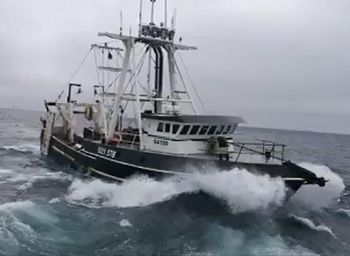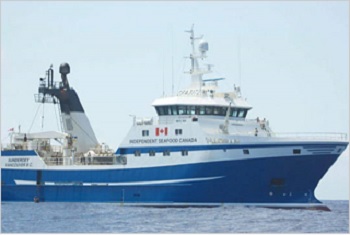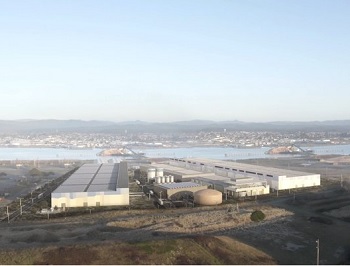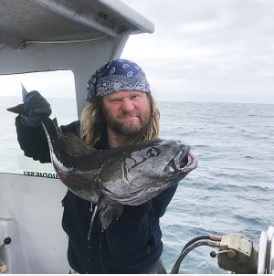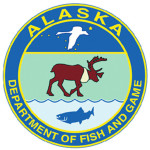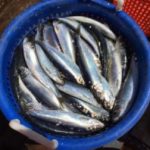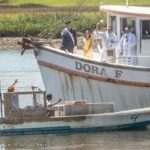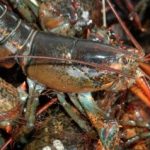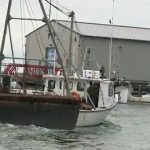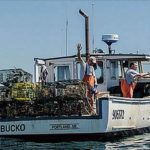Category Archives: Pacific
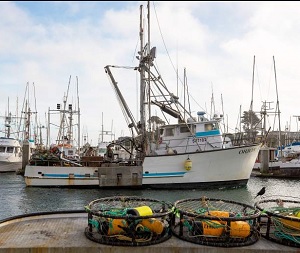
New rules for California Dungeness crab fleet
The California Department of Fish and Wildlife on Friday unveiled a batch of complex new rules designed to reduce the risk to endangered whales and sea turtles of becoming entangled in commercial Dungeness crab fishing gear. The draft regulations are set to be finalized before the next commercial season starts in November after a period of public review. Among the provisions are options to restrict fishing in certain depths, require crabbers to set only a share of the traps for which they’re permitted or limit intervention to any of six newly established geographic zones, rather than the larger Northern and Central California management districts that currently exist. >click to read< 09:14
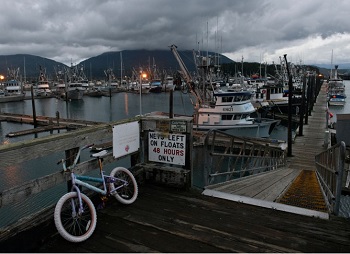
An Alaska commercial fishing season unlike any other kicked off in Cordova on Thursday
Normally, the Copper River gillnet season, the first salmon fishery to open in the state, is known for high-priced fish and celebrity-level fanfare: One of the first fish to be caught is flown to Seattle via Alaska Airlines jet, and greeted with a red carpet photo opportunity. In this pandemic year, things are different all around: The Alaska Airlines first fish photo op will still happen, but the festivities have been tamped down and six-foot distancing and masks are now required. Instead of a cooking contest pitting Seattle chefs against each other, a salmon bake for workers at Swedish Hospital in Ballard is planned. And this year, Cordova’s first-in-the-state salmon fishery will be a high stakes test,,, >click here< 10:15
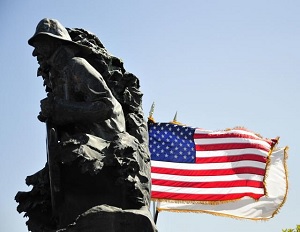
Port of Coos Bay: Annual Blessing of the Fleet Memorial Service canceled
The annual Blessing of the Fleet Memorial Service has been canceled this year due to public safety concerns over the novel coronavirus. The Blessing of the Fleet is a service which honors locals in the commercial fishing industry who have died since 1941. According to a release from the Port of Coos Bay, the service has been canceled “due to public gathering restrictions and social distancing recommendations.”,, According to Fiona Bai, with Port of Coos Bay, the decision to cancel the service was difficult for the Fisherman Memorial Committee. “It’s so meaningful to the community, it’s regretful to have to cancel it,” Bai said. While the ceremony will not be held this year, names will still be added to both the plaques in the Charleston Fisherman’s Memorial Garden. >click to read< 15:25
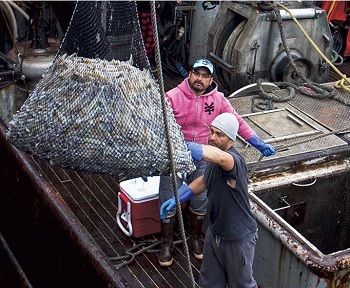
Squid fishing season is off to a good start in Monterey Bay after a dismal 2019.
The 2020-2021 commercial squid fishing season started on April 1 and dozens of boats can be seen dotting the horizon of Monterey Bay as the squid return, this year in better numbers. “This has actually been one of the best Aprils we’ve had since 2010,” says Pete Guglielmo, a buyer and processor with Southern Cal Seafood, Inc. “Usually when the squid show up this early in the season, it’s proved to be a very good fishing season for the industry.” The squid are also larger than they’ve been in the last several years, and in high demand. >click to read< 09:04
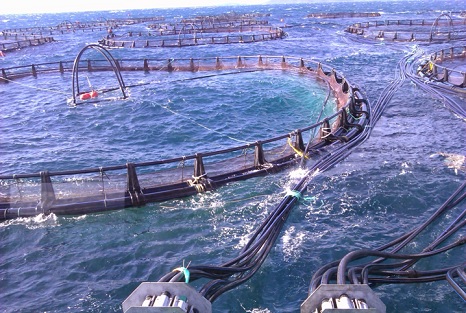
Trump Executive Order Opens the Door for Massive Industrial Fish Farms in Oceans
Last week, the Trump administration announced an executive order opening the door for large-scale fish farming. That order, as reported by the Food and Environment Reporting Network (FERN), is designed at its core to expand the scope and facilities for aquaculture. What that likely means is a reduction in regulations, and the creation of large offshore fish farms.,, While offshore fish farms would be a boon to major seafood corporations, smaller fishermen would be harmed by it in several ways. Those environmental effects could deplete the health of wild waters, which fishermen depend on. They could also flood the market with cheaper farmed fish, harming the demand for more sustainably caught seafood. >click to read< 08:04
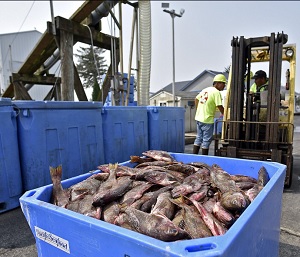
Coronavirus outbreak hits Pacific Seafood processing plant in Warrenton
The scope of the outbreak was not immediately clear on Monday afternoon. A spokesman for Clatsop County described six cases involving workers at Pacific Seafood and one case involving one of the worker’s contacts. In a statement on Saturday, Pacific Seafood said it suspended operations at the Warrenton plant after a worker tested positive for the virus. John King, the general manager of the seafood processor, said the worker was resting at home. King said Pacific Seafood immediately suspended operations and did a professional sanitization of the plant. >click to read< 12:14
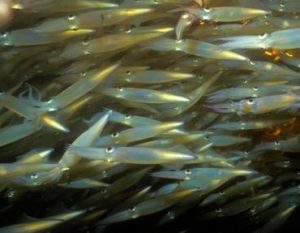
Gary Griggs – Salmon and squid
Salmon and squid both came on the radar this past week,,, These two marine animals have both shared some top billings in their importance to California’s commercial fishery in recent years, although there are significant year-to-year fluctuations. Calamari or market squid have been the number one fishery in tonnage caught, year after year… until last year. In typical years, 70,000 to 118,000 tons (118,000 is the allowable total catch) would be brought to the docks by the squid boats, making up consistently two-thirds of the entire commercial catch. >click to read< 10:46
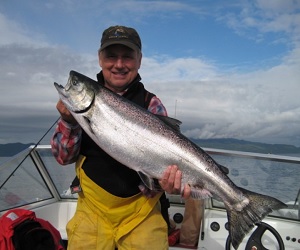
Destroying a fishery will not save Southern Resident Killer Whales – Scientists say feed starving whales farmed salmon
In less than two weeks, a Seattle-based federal judge will decide the fate of some 1,600 Southeast Alaska salmon trollers—fishermen who are already looking at the lowest allotment of Chinook in 20 years, largely due to the past three Pacific Salmon Treaty agreements that have cut, by two-thirds, their allocation of these high-value, sought-after fish. If you haven’t been following the trade press or Alaska media in the past few weeks, you may not know that this group of largely rural Alaska fishermen are today facing the unthinkable: being put out of business—collateral damage as the result of a lawsuit filed by a Washington state-based NGO, the Wild Fish Conservancy (WFC), against the National Marine Fisheries Service (NMFS). In the lawsuit, WFC seeks a Preliminary Injunction to stop the Southeast Alaska summer troll fishery, alleging that NMFS has failed to allow enough king (Chinook) salmon to return to Puget Sound to feed endangered Southern Resident Killer Whales,,, >click to read< 08:16
Feed starving whales farmed salmon, say scientists – “You could use well boats to deliver the farmed fish to where the whales feed.” >click to read<
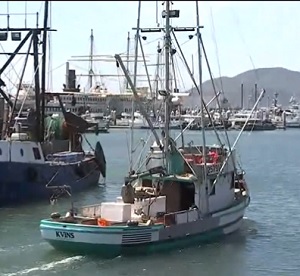
Start of salmon season gives hope to fishing industry crushed by Coronavirus pandemic
The Bay Area’s fishing industry has been devastated by the coronavirus pandemic. But, local fishing companies are hoping salmon season will help change their fortunes. The fishing industry says the closure of restaurants has been devastating. Now, they’re hoping they’ve weathered the brunt of the economic storms. The fishing industry’s fates have always been ruled by nature, but long time fishermen and distributors say there’s no way they could have seen the economic blow the coronavirus pandemic would land on their industry. video, >click to read< 14:02
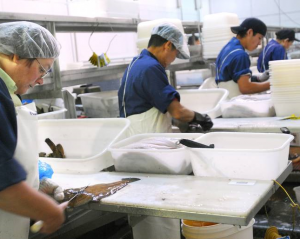
Port of Astoria: Twelve more workers test positive for Coronavirus at Bornstein Seafoods
Clatsop County reported Friday that 12 more workers at Bornstein Seafoods in Astoria have tested positive for the coronavirus, bringing the outbreak to 26. The county Public Health Department began testing workers at the seafood processor on May 2 after the company informed the county on May 1 that an employee had tested positive for the virus. Bornstein Seafoods has shut down two plants at the Port of Astoria in response to the outbreak and advised employees to self-isolate at home. The Bornstein Seafoods outbreak rippled across Astoria. >click to read< 09:25
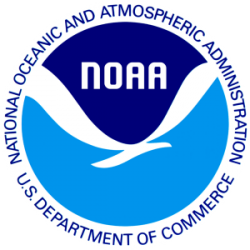
Commerce Secretary Announces $300 Million CARES Act Allocation – NOAA will disburse funds through partners
As a next step, NOAA Fisheries will use these allocations (see below) to make awards to our partners—the interstate marine fisheries commissions, Puerto Rico, and the U.S. Virgin Islands—to disburse funds to address direct or indirect fishery-related losses as well as subsistence, cultural, or ceremonial impacts related to COVID-19. “We are going to rely primarily on our partners at the interstate marine fishery commissions during the award process because they have a demonstrated track record of disbursing funds provided to them quickly and effectively,” said Chris Oliver, Assistant Administrator for NOAA Fisheries. Read the Summary of Allocations, and review the question and answer section. Q. Who should affected fishermen and communities contact about accessing this funding? >click to read< 11:00

President Donald J. Trump Executive Order Promoting American Seafood Competitiveness and Economic Growth
By the authority vested in me as President by the Constitution and the laws of the United States of America, and in order to strengthen the American economy; improve the competitiveness of American industry; ensure food security; provide environmentally safe and sustainable seafood; support American workers; ensure coordinated, predictable, and transparent Federal actions; and remove unnecessary regulatory burdens, it is hereby ordered as follows: DONALD J. TRUMP, THE WHITE HOUSE, May 7, 2020. >click to read<
President Donald J. Trump Is Working to Secure America’s Seafood Supply Chain and Bring Jobs Home – >click to read< 17:54
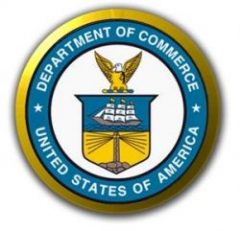
U.S. Department of Commerce Announces Availability of $1.5 Billion in CARES Act Funds to Aid Communities Impacted by the Coronavirus Pandemic
U.S. Secretary of Commerce Wilbur Ross today announced that the Department’s Economic Development Administration (EDA) is now accepting applications from eligible grantees for Coronavirus Aid, Relief, and Economic Security Act (CARES Act) supplemental funds (EDA CARES Act Recovery Assistance) intended to help communities prevent, prepare for, and respond to coronavirus.,, On March 27, 2020, President Donald J. Trump signed the $2 trillion CARES Act into law. The CARES Act provides EDA with $1.5 billion of which $1.467 billion is available for grant making. The remaining funds will be transferred to cover salaries and expenses and oversight activities. >click to read< 12:54
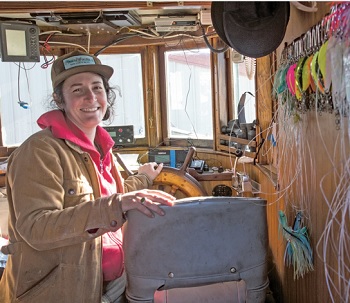
Port Townsend: Captain Kat Murphy fishes to feed her community
She likens it to “chasing wild herds of buffalo.” On her 38-foot wooden power troller, “Grace,” and with one other crewmember, Murphy spends her days trolling for salmon—a fishing method that leads her through sparkling waters buffeted by Alaska’s rocky coastlines and small towns. “We’re the wandering trollers,” Murphy said. “Because of our gear type, we’re not limited to these tiny areas.” Off the coast of Baranof or Kruzof or Coronation islands, in the offshore waters of Southeast Alaska, power trollers like Murphy’s “Grace” run high-tension wires weighted with lead balls off hydraulic gurdies from various locations on their boats. The four lines on her boat are interspersed with glittering lures and hooks to attract the wild salmon. >click to read< 10:30
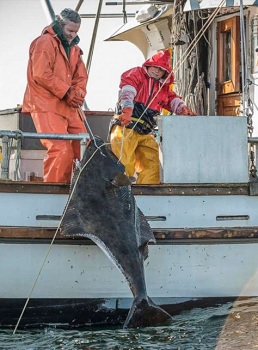
Fishermen, farmers suffering from food supply disruptions concerned for what’s to come
As the coronavirus has spread through the U.S. over the last two months, it has dealt a significant blow to the country’s food supply chain and driven the price of products down so much that those who source them aren’t sure if they’ll get a return on the time and money they’ve invested over the last year. Many are now concerned about what the rest of the year will look like and what it means for the foods they grow. For some fishermen, however, the risk of losing money is too high. California’s commercial salmon season began on Friday, but Mike Conroy, executive director of the Pacific Coast Federation of Fishermen’s Associations, says that with the markets “upended” and 75% of California salmon purchased by restaurants, many fishermen might not go through the trouble of fishing. >click to read< 09:16
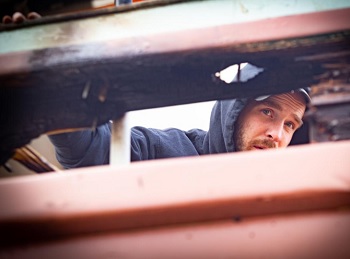
Boat fire sends fishermen scrambling
His boat catching fire wasn’t the hot start to the commercial fishing season Jerry Matzen III was hoping for, but the 34-year-old Ilwaco fisherman was glad his boat was saved from the flames to fish another day. Matzen’s boat was already billowing smoke from the port side when Ilwaco Volunteer Fire Department arrived at about 8 a.m. Friday, May 1 to the Ilwaco Boatyard. Within minutes the fire crew doused the flames and cut out a charred chunk of wood siding to prevent the fire from spreading further. The burnt section was about 3 feet long and a foot tall. Fortunately it was above the waterline and in a straight spot before the curve of the stern, making for a less complicated repair with no structural damage, Matzen said. Matzen bought the boat in early January, his first as the sole owner. “It’s where my crab money went, to starting my own business.” 6 photos, >click to read< 17:04
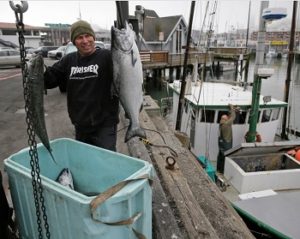
Salmon fishermen in Oregon to face brief closure that could help them later in the year
The commercial salmon season started just two weeks ago, but Tuesday is your last day to fish until the season opens up again May 26th. The executive director of the Oregon Salmon Commission says the season normally sees closures but at a different time. Because of the coronavirus pandemic, fishermen are catching Chinoock salmon but having a hard time selling them. That was behind the push to change the closure time from Cape Falcon south to the California border for this season. “Were basically closed for the markets in May,” said Nancy Fitzpatrick, the executive director of the Oregon Salmon Commission. “But it gave us more open days in July and August when we might typically be closed.” >click to read< 08:54
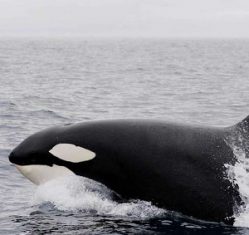
SE Alaska Chinook controversy attracts more user groups
A controversy over whether NOAA Fisheries is properly managing Chinook salmon stocks in Southeast Alaska, with consideration for a hungry whale population in decline, has been joined by sport and charter fishermen who say Alaska is not the problem. The environmental organization SalmonState, along with the Alaska Longline Fishermen’s Association and Alaska Trollers Association said on Monday, April 27, that sport and charter harvesters have joined them in support of NOAA Fisheries in a lawsuit brought by Wild Fish Conservancy, of Duvall, Washington. The group characterizes as misguided the decision of WFC to sue NOAA Fisheries in federal court to halt Chinook salmon trolling in Southeast Alaska effective July 1. >click to read< 16:15
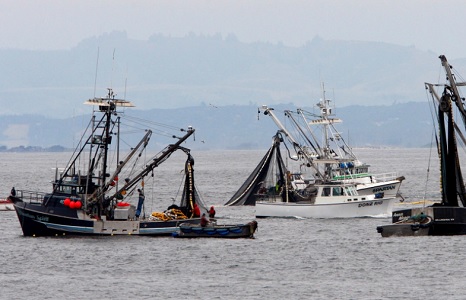
Squid are back in abundance in Monterey Bay
The squid fishery is among the most lucrative and productive in the state, frequently valued in the double-digit millions. According to the California Department of Fish and Wildlife, landings from California market squid (Doryteuthis opalescens) were over 34,000 short tons in the 2018-2019 season, generating more than $33 million in revenue. But according to Diane Pleschner-Steele, the executive director of the California Wetfish Producers Association, these charming and elusive animals can be difficult to pin down. The statement has proven true in the last couple of years. Spawning squid are targeted because they die shortly after they reproduce, and so fishing season — though technically open all year round — coincides with the spawning season. The catch is historically best in Southern California in fall and Central California in spring-summer. >click to read< 10:35
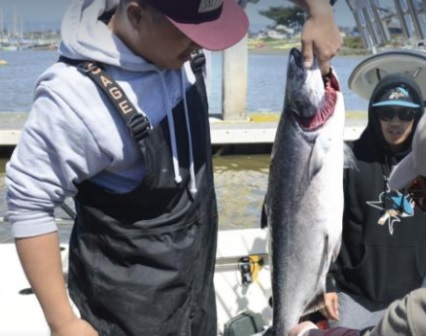
Monterey Bay fishermen looking forward to salmon season
There’s a frenzied pace to life in Monterey Bay’s fishing ports this week. Today, May 1, fishermen and women in Santa Cruz, Moss Landing and Monterey began to harvest the iconic California king salmon — sustainable, nutritious and the economic backbone of local working waterfronts during summer months. Wild king salmon and summer barbeques are as steeped in California culture as fresh, in-season Dungeness crab for Thanksgiving and Christmas dinner, While a few winters of healthy rainfall and strong management plans have been a boon to California salmon populations running to the Sacramento River, the impacts of the COVID-19 pandemic have wreaked havoc on local seafood supply chains. We fishermen and women can catch the fish, but the question is: Who will buy them? >click to read< 08:11
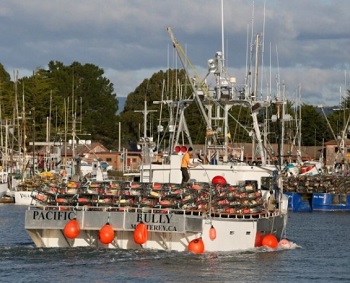
Crab fishing industry not canceled yet, but,,,
Humboldt County’s crab fishing season will remain open for now, unlike fisheries south of the Sonoma and Mendocino counties line, which have been ordered to close on May 15. An ongoing settlement agreement allows the season to be ordered closed when there’s too high a risk of whales becoming entangled in fishing gear. For now, the North Coast has been spared of closure, though a recent report from the National Oceanic and Atmospheric Administration flags one humpback whale, which beached at Samoa in October 2019. The whale later died. Overall, the report indicates California had 17 whale entanglements in 2019, down from 34 the year before. >click to read< 21:46

Trollers side with NMFS in Chinook litigation – Endangered whales compete with increasing populations of seals, sea lions
Litigation to halt the Southeast Alaska king salmon fishery to provide sustenance for Southern Resident Killer Whales is prompting commercial trollers to intervene in the lawsuit brought by the Washington state based Wild Fish Conservancy. The Alaska Trollers Association in Juneau voted on Tuesday, April 21, to insert itself into the defense of the lawsuit filed in mid-March against the National Marine Fisheries Service and the subsequent injunction against king salmon fishing and the troll fishery specifically. >click to read< 15:41
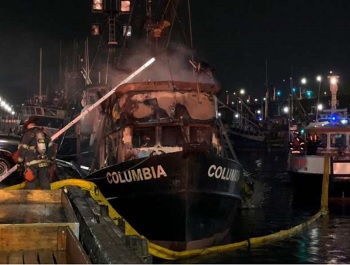
Boat sustains heavy damage as it burns along Fishermen’s Terminal
A large boat at Seattle’s Fishermen’s Terminal suffered severe damage during a large fire on board Sunday evening. The fire broke out just after 10 p.m. and flames were visible shooting from the top deck as far away as an SDOT camera at 15th Ave. West and West Emerson Street. >click to read< 11:21 Fire damages boat near Fishermen’s Terminal – No injuries were reported. The cause of the fire is under investigation. photo, >click to read<
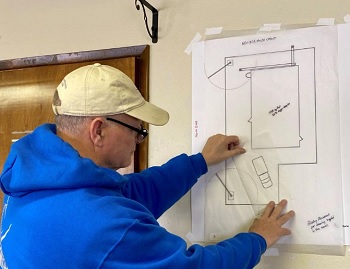
Port of Coos Bay Ice Plant Rebuild Project – Some businesses express frustration with officials over new layout, lack of inclusion
Mike Babcock, of Oregon Seafoods, is leading a group of local businesses and fishermen who he said feel left out of the Oregon International Port of Coos Bay’s new Ice Plant Rebuild Project. “Our company hoist is on the northwest corner of the dock and the public hoist is in the northeast corner of the dock,” said Babcock. “The new building, which shows it’s been moved over to the north side, severely limits the corner use of the dock.” The dock, which houses the ice plant, has historically been used for other reasons outside of fishermen accessing commercial grade ice, >click to read< 16:25
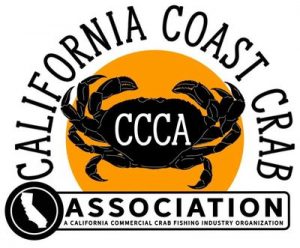
Dungeness Crab Season Closed Early Due to Dubious Whale Crisis, COVID-19 Economic Impact on Coastal Communities Made Worse by Closure
The California Department of Fish and Wildlife (CDFW) today announced that effective May 15, 2020, the commercial Dungeness crab fishing season, which began in December, will be closed due to the perceived risk of commercial crab fishing gear harming migratory whales. Ironically, as a result of ongoing cooperative measures between the California Dungeness crab fishing fleet and CDFW, interactions between Dungeness crab fishing gear and the two subgroups of Humpback whales, or Distinct Population Segments (DPS), which are “endangered” and “threatened” under the Endangered Species Act (ESA) are extremely rare. “The risk of crab fishing gear harming endangered whales is statistically insignificant because of low concentrations of whale, as well as the relatively small amounts of gear being deployed along the Central California coast,” said Ben Platt, president of the California Coast Crab Association (CCCA). >click to read< 12:26
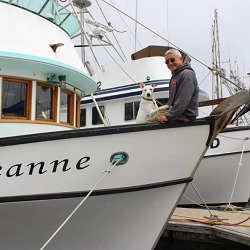
North Coast fishermen worry about pricing when California salmon season opens May 1
All eyes are on whether the retail business will be good enough to sustain the losses in the wholesale market with the restaurants closed amid the coronavirus pandemic. When the season opens, it’s unclear how much fishermen will earn, but some estimates are as low as $3 per pound. While the shelter-in-place closure or limitations has dried up the wholesale market, the retail market has been keeping the industry afloat.,, Whatever is bought, Bodega Bay fisherman Dick Ogg stands prepared to launch his 54-foot boat named Karen Jeanne. “It’s a challenge to say the least. The closure of the restaurants is significant. I don’t think anybody has seen anything like this in history,” he said. “I’m trying to figure out how it’s going to work out. I don’t know how much money we’ll get and how it will get transported.” >click to read< 16:36






